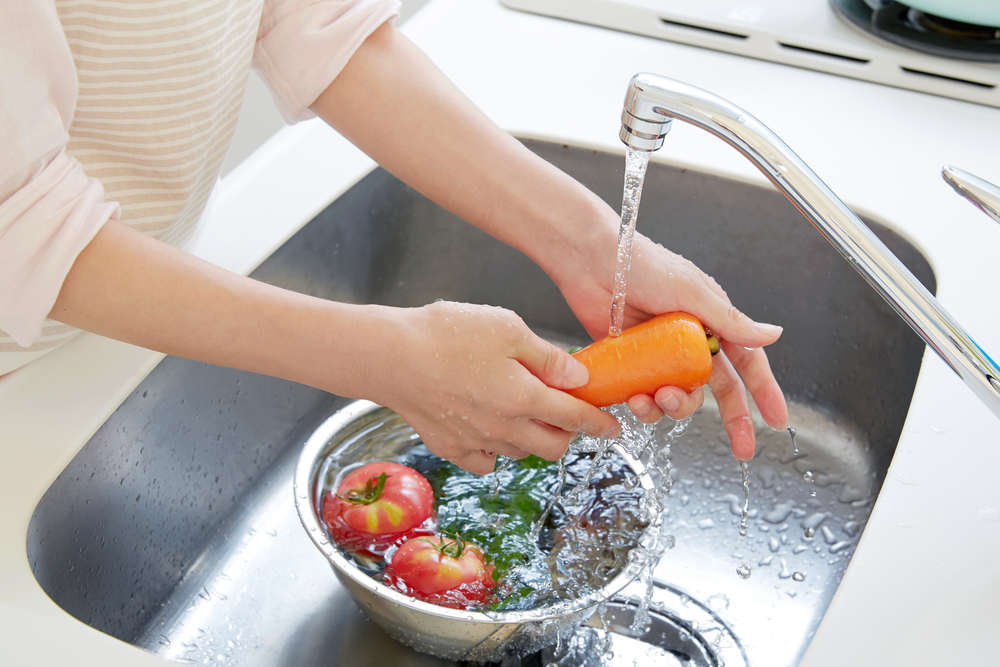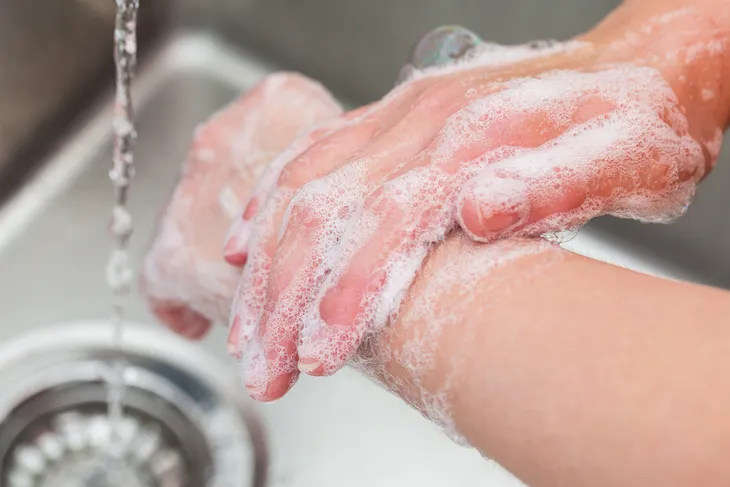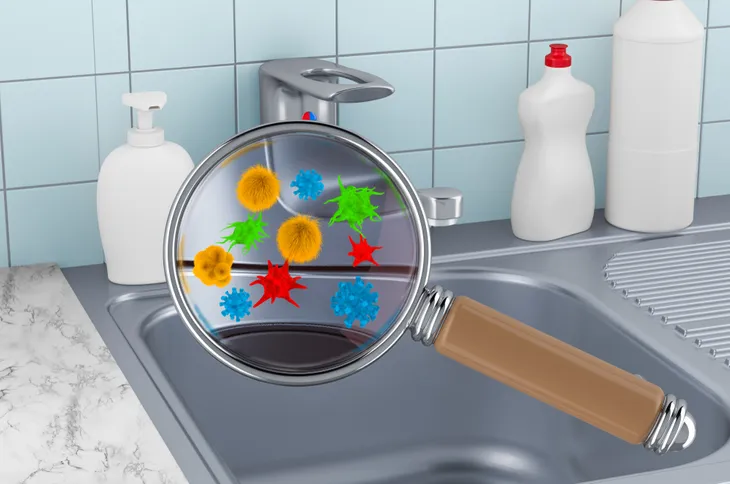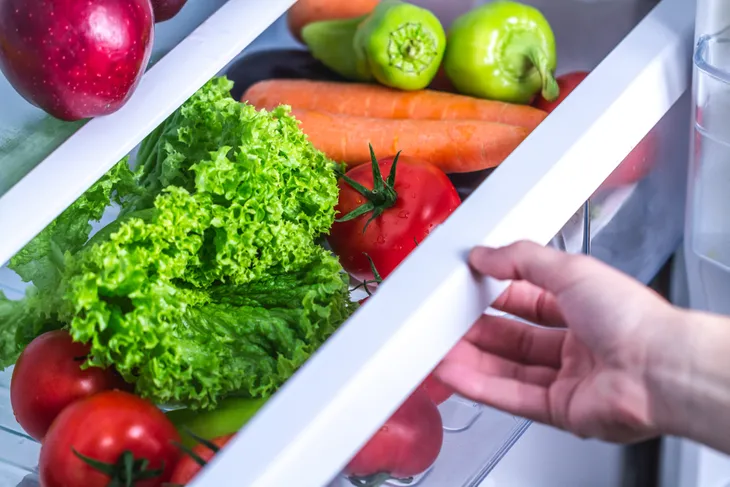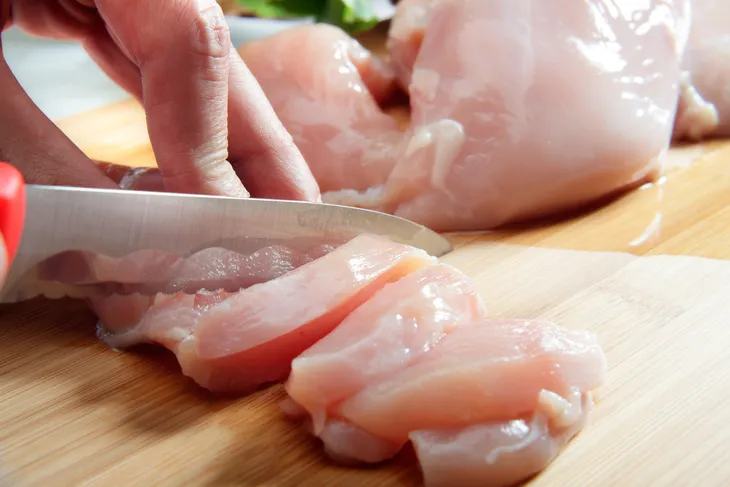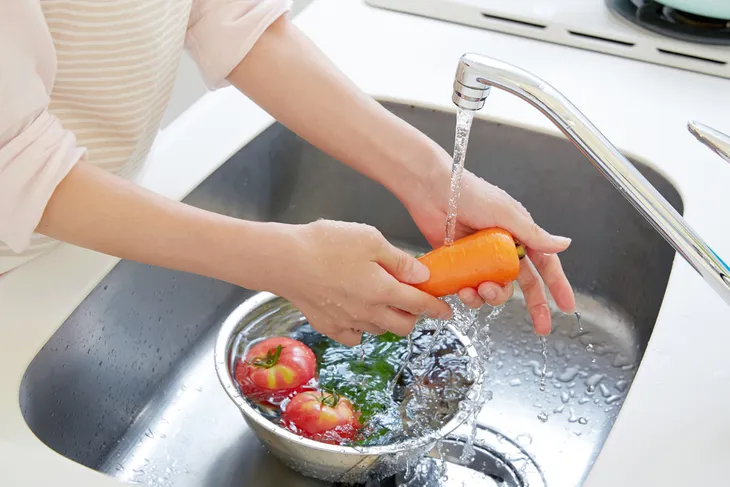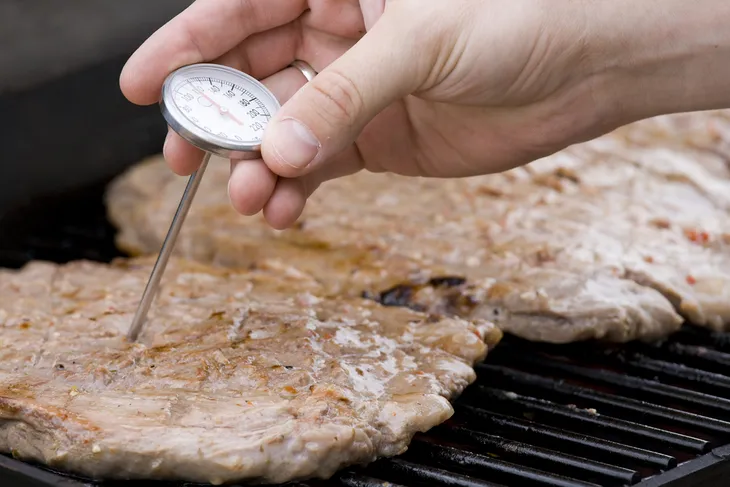Do you know how to prevent food poisoning? Food borne illnesses caused by harmful bacteria can happen when people eat food that has not been cooked or prepared properly. It only takes a few hours for nasty bacteria to multiply to the millions. Food poisoning can lead to long-term health issues and in the worst case scenario, death.
Avoid getting sick by preventing contamination in your kitchen. You can prepare delicious meals that the whole family will love by keeping your kitchen clean and following a few simple food safety tips in the kitchen. Here are seven food safety tips…
Practice Personal Hygiene
Before you start preparing food, it’s vital that you wash your hands properly. Start by rinsing your hands under the hottest water you can tolerate. Use a soap dispenser to soap and lather your hands for at least 40-seconds, making sure to scrub your wrists and lower arms.
If you’re going to be kneading dough, you’ll want to clean under your fingernails using a nail brush. Dry your hands with paper towels. You may be tempted to use a dish towel, but remember, dish towels get wiped on everything, so they may not be as clean as your nicely washed hands.
Washing to Prevent Illness
Bacteria that cause illness can survive and spread in your kitchen quite easily. Wet and moist surface areas are a breeding ground for bacteria. To avoid these harmful bacteria from lingering, it’s important to wash and sterilize things properly.
Aside from putting things in the dishwasher to clean, wash cutting boards, utensils and dishes in hot, soapy water. Surface areas like kitchen counters can be wiped down with kitchen disinfectant spray and paper towels. Kitchen towels and clothes should be washed frequently in the washing machine to prevent residual bacteria.
Refrigerate Appropriate Food
To reduce the risk of food poisoning, avoid the danger zone which is between 40-degrees fahrenheit and 140-degrees fahrenheit for food. Food should be stored in the refrigerator to slow the growth of bacteria that can cause illness. To reduce your risk of food poisoning, perishable foods should be refrigerated within 2-hours or 1-hour if it’s hotter than 90-degrees fahrenheit outside.
If you’re thawing food, never leave them on the counter. Food from the freezer should thaw slowly in the refrigerator. The same goes for marinating meat; leave it in the fridge instead of sitting on the counter.
Don’t Cross Contaminate Your Food
Cross-contamination occurs when harmful bacteria from one food are transferred to another food item or surface area. As an example–cutting raw chicken on a cutting board can contaminate the board and counter with juice from the poultry. If the juice comes into contact with another food item, it is contaminated.
There are two types of cross contamination, direct and indirect. Direct contamination occurs when foods touch each other. Indirect contamination is the result of bacteria transferring between utensils, your hands, kitchen surface and then onto food. When shopping, transporting, storing and preparing certain types of food like raw meat, seafood, poultry, and eggs keep away from ready-to-eat foods like fruits, vegetables and breads.
Wash Produce and Fruit
When washing leafy greens, start with clean hands. Cut away any damaged leaves and wash under running water. A lettuce spinner can be used to remove excess water or you can pat the leaves dry on a paper towel. You may be tempted to store freshly washed greens in the fridge, but the damp leaves can become a breeding ground for bacteria.
Washing fruits and vegetables that have a skin or rind is important to prevent bacteria on the outside of the item from getting inside when you cut into it. Using a soft, clean brush, gently scrub the fruit or vegetable under water and pat dry.
Ensure Food is Cooked Properly
Properly cooking food will ensure harmful bacteria are killed during the cooking process. Eating food that is not properly cooked can cause an unpleasant case of food poisoning. While some types of food like potato won’t necessarily harm you if they’re not cooked properly, they may not taste great. Meat on the other hand, needs to be cooked all the way through otherwise it can be quite dangerous.
If you’re cooking pork, poultry, sausages or chicken use a meat thermometer or cut in the middle of the meat to check if it’s done. Eating uncooked meat can cause a range of symptoms including diarrhea, abdominal cramping, vomiting and fever.
Pay Attention to Labels and Expiry Dates
When shopping at the grocery store, it’s important to check the information on the labels and packaging. Many people are often confused between the best before dates and the expiration dates.
Expiration dates tell us the last day a product is safe to consume. Once this date is past, the item is not fit for consumption. The best before date does not influence food safety. Many products have a best before date including eggs, pantry items like dry or canned goods and even meat. It tells the consumer how long an unopened food item will keep its nutritional value and flavor.
